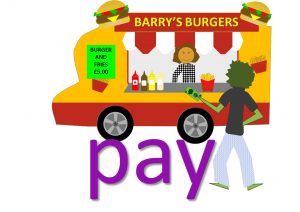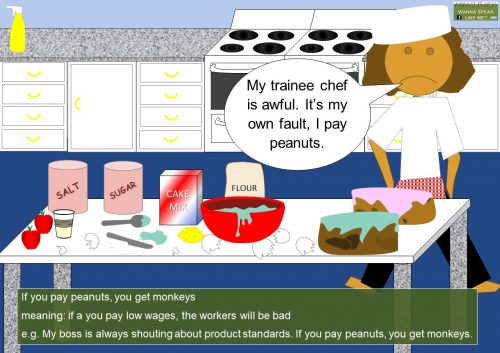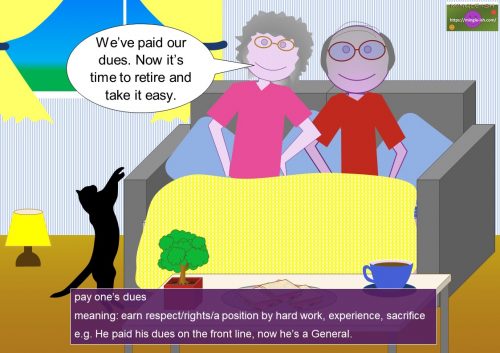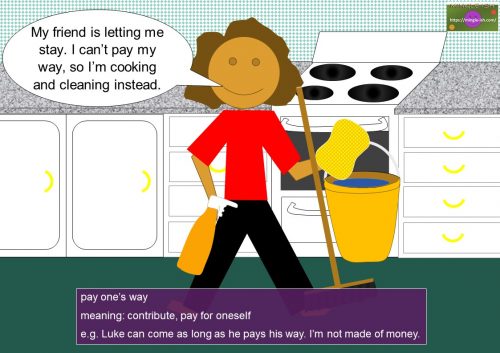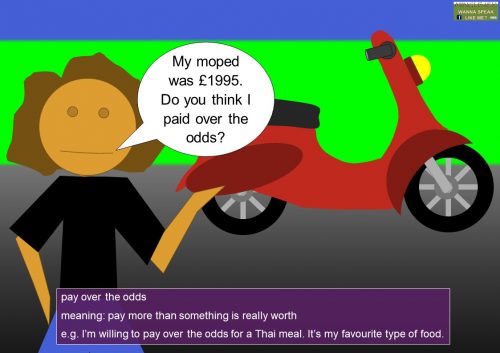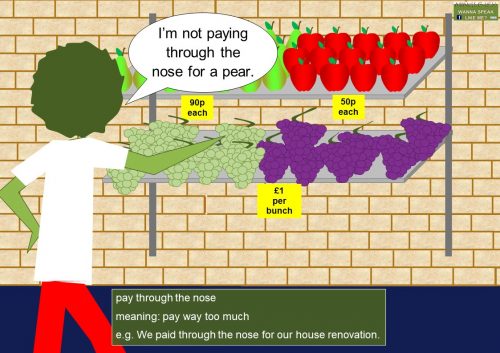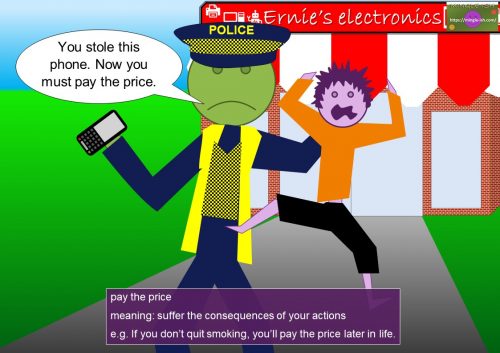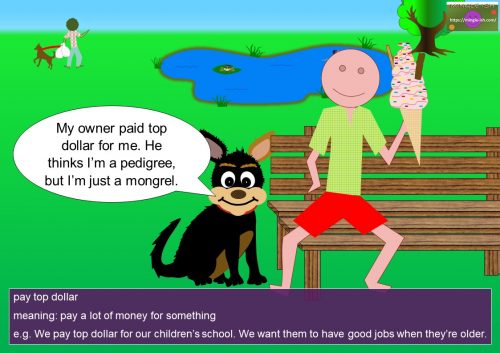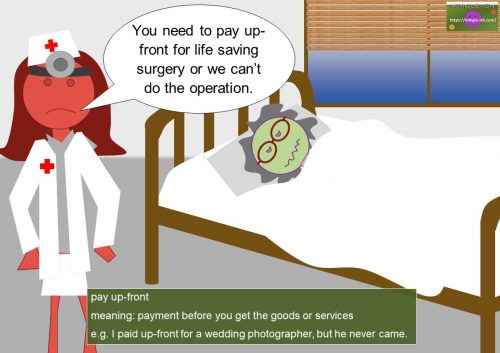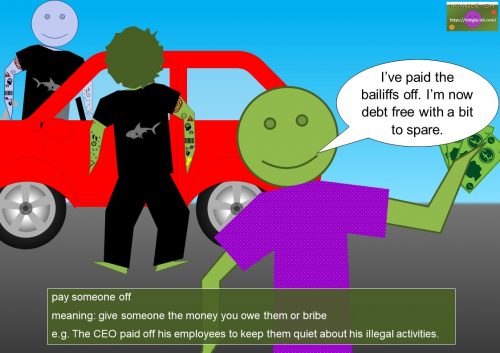The word ‘pay’ can mean many different things. As a verb, it means to give money for goods or a service provided or suffer a consequence.
For example:
- You pay for the drinks and i’ll pay for lunch. (give money for goods or a service provided)
- The murderer will pay the price for his crime. (suffer a consequence)
pay is an irregular verb. The past tense is paid and the past participle is paid. I’ll give you an example sentence of each tense:
- I always pay the rent on time. (present)
- The boss paid his employees and gave them a bonus. (past simple)
- I have paid for the tickets on my card, you can pay me back on pay day. (past participle)
idioms list with ‘pay’
- if you pay peanuts, you get monkeys – if you pay low wages, the workers will be bad
e.g. My boss is always shouting about product standards. If you pay peanuts, you get monkeys. - pay one’s dues – earn respect/rights/a position by hard work, experience, sacrifice
e.g. He paid his dues on the front line, now he’s a General. - pay one’s way – contribute, pay for oneself
e.g. Luke can come as long as he pays his way. I’m not made of money. - pay over the odds – pay more than something is really worth
e.g. I’m willing to pay over the odds for a Thai meal. It’s my favourite type of food. - pay someone off – give someone the money you owe them or bribe
e.g. The CEO paid off his employees to keep them quiet about his illegal activities. - pay the price – suffer the consequences of your actions e.g. If you don’t quit smoking, you’ll pay the price later in life.
- pay through the nose – pay way too much
e.g. We paid through the nose for our house renovation. - pay top dollar – pay a lot of money for something
e.g. We pay top dollar for our children’s school. We want them to have good jobs when they’re older. - pay up-front – payment before you get the goods or services
e.g. I paid up-front for a wedding photographer, but he never came.
Let’s see these idioms with pictures and meaning using real-life scenarios.
